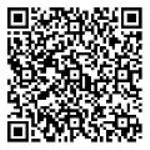期刊目錄列表 - 55卷(2010) - 【教育科學研究期刊】55(1) 三月刊
 Directory
Directory
視障青少年同儕社交需求與社交挑戰之探究
作者:金慧珍(國立臺灣師範大學復健諮商所) 、張千惠(國立臺灣師範特殊教育學系)
卷期:55卷第1期
日期:2010年3月
頁碼:91-125
DOI:10.3966/2073753X2010035501004
摘要:
本研究旨在探討視障青少年同儕社交技巧的需求與挑戰,並探究因應前述需求與挑戰所實施之社交技巧訓練課程的成效。研究設計以質性研究為主,量化研究為輔。研究工具有:焦點團體訪談題綱、團體社交技巧訓練課程、一對一高中生社交訓練課程、家長個別訪談題綱與社交技巧檢核表。研究對象共有11位。本研究結果發現,視障青少年需增強初階社交技巧及需提升進階社交技巧。另外,所欠缺的應對技巧有:需要學習情緒管理、壓力處理技巧、如何因應同儕的挑釁及需加強對自我的正向評價。研究者提供八次團體社交技巧訓練課程,以情境演練與角色扮演方式教導研究對象。最後結果顯示,研究對象之行為及想法都有改善。文末亦討論研究限制與未來可行之議題。
關鍵詞:同儕社交互動、社交技巧、視障青少年
 《詳全文》
《詳全文》

Journal directory listing - Volume 55 (2010) - Journal of Research in Education Sciences【55(1)】March
 Directory
Directory
A Study on the Needs and the Challenges of Peer Social Interaction in Adolescents with Visual Impairments
Author: Hui-Chen Chin(Graduate Institute of Rehabilitation Counseling, National Taiwan Normal University),Chien-Huey Sophie Chang(Department of Special Education, National Taiwan Normal University)
Vol.&No.:Vol. 55, No. 1
Date:March 2010
Pages:91-125
DOI:10.3966/2073753X2010035501004
Abstract:
The purpose of this study was to explore the needs and challenges encountered in peer social interaction in adolescents with visual impairments. A qualitative research design was mainly used to collect and analyze data. A quantitative method was also used to calculate the scores on the social skill checklist. Finally, a group social skill training program was provided to participants. The focus group interview protocol, group social skill training program, one-on-one social skill training for high school students, the social skill checklist, and a parent interview protocol were used to collect data and investigate the outcome of social skill training. The participants included eleven adolescents with visual impairments. Two of them used large print and the rest of them used Braille as their learning media.
The findings showed that the needs of visually impaired adolescents in peer social interaction included: a need to enhance basic social interaction skills, and to promote advanced social skills. The challenges experienced by visually impaired adolescents in peer social interaction consisted of being bullied, having peers playing jokes on them or making fun of their visual impairments, being socially rejected, and having no effective social skills to cope with the challenges. The results of this research indicated that social skill training did improve the quality of peer social interaction skills in these adolescents. Suggestions for future research were also provided.
Keywords:peer social interaction, social skills, adolescents with visual impairments